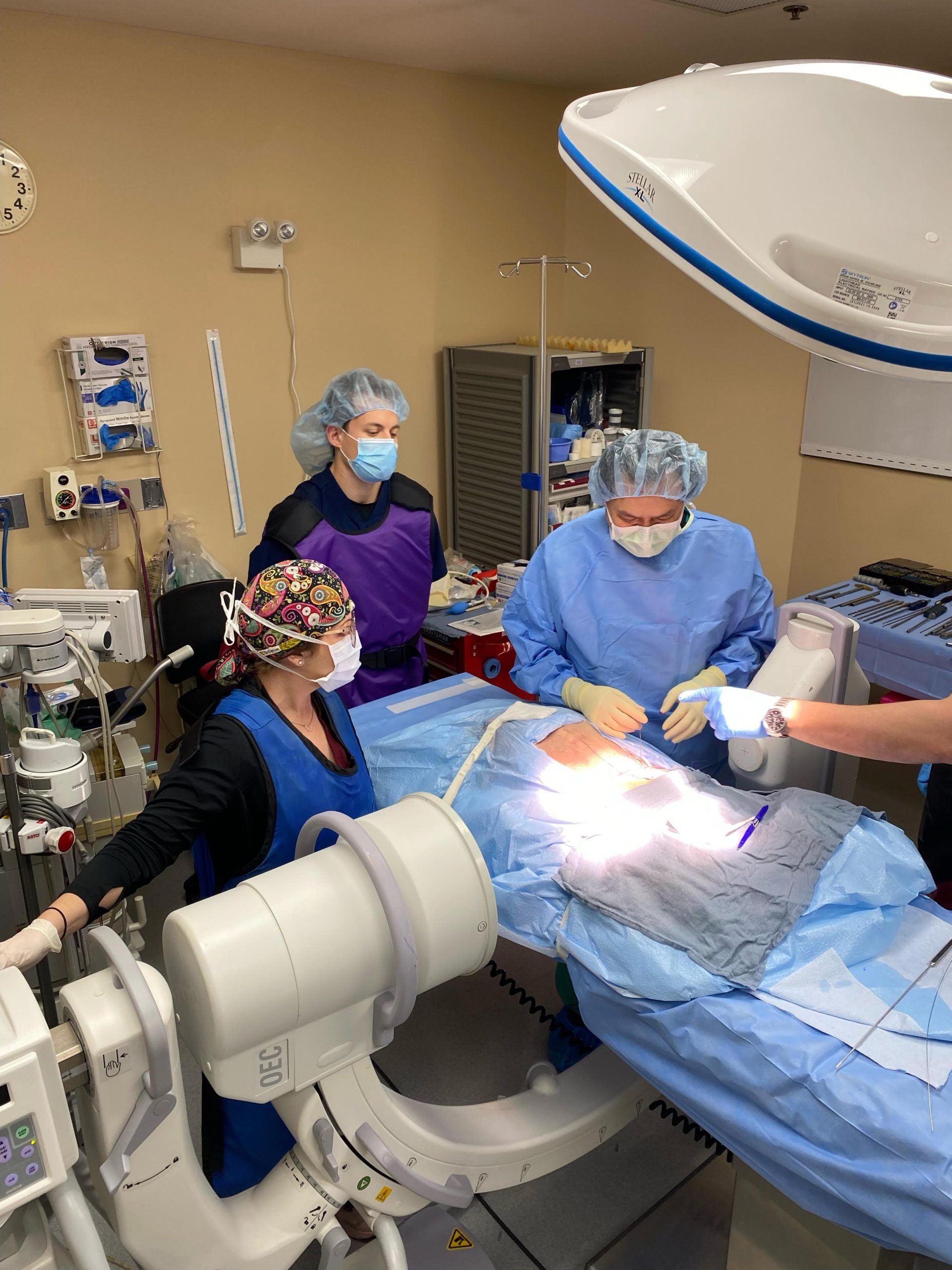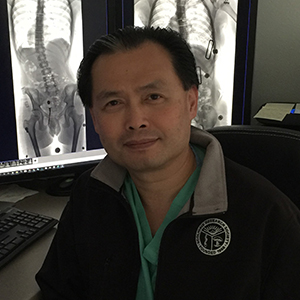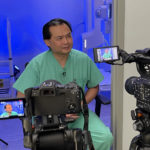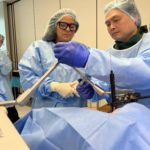Dr. Robert Huang, medical director of the Orthopaedic Spine Institute of Northwest Florida, is helping medical colleagues expand their knowledge and skillset after hosting a surgical lab designed to improve minimally-invasive spine procedures, as well as introduce medical experts to a new, state-of-the-art spinal fusion technology.
Held in late January, the surgical lab provided an opportunity for Huang and other medical professionals to execute mock surgeries and reinforce surgical techniques used in endoscopic procedures, as well as practice implanting a new medical device, FlareHawk9.
Created by Florida-based Accelus, the FlareHawk9 is a multidirectional, expandable lumbar fusion device for people experiencing intervertebral issues that are causing chronic leg, back or neck pain. The device is implanted into the patient to support the spine and rehabilitate the intervertebral disc.
“The goal behind these labs is to become familiar with new technology within our industry and help others in the medical field to understand best surgical practices,” says Huang, a board-certified and fellowship-trained spine surgeon of 26 years. “Endoscopic techniques cause less tissue damage than traditional open or even microscopic procedures, which will result in less pain and quicker recovery times for patients, so it is important that as medical professionals we rehearse these techniques.”
According to Huang, the endoscopic procedures performed in the lab are transforaminal and interlaminar approaches for full endoscopic lumbar discectomy (TELD and IELD), as well as, endoscopic-assisted transforaminal lumbar interbody fusion (endo TLIF). These procedures are effective for those who suffer from back issues such as recurrent herniated lumbar discs and severe degenerative disc disease.
According to Huang, these procedures are “ultra-minimally” invasive and are typically performed through a 7 to 10-millimeter tube under direct visualization from an endoscopic camera, which allows for smaller, more precise incisions and repairs than typical spine surgeries and results in less discomfort and time to heal.
These advanced, minimally-invasive surgeries are beneficial to most patients depending on their medical condition and treatment plan. Huang says he has high hopes of bringing these endoscopic procedures to more Floridians in the state’s panhandle.
Those experiencing neck, back or leg pain looking for a minimally-invasive solution are encouraged to call (850) 356-4407 to schedule an appointment.





